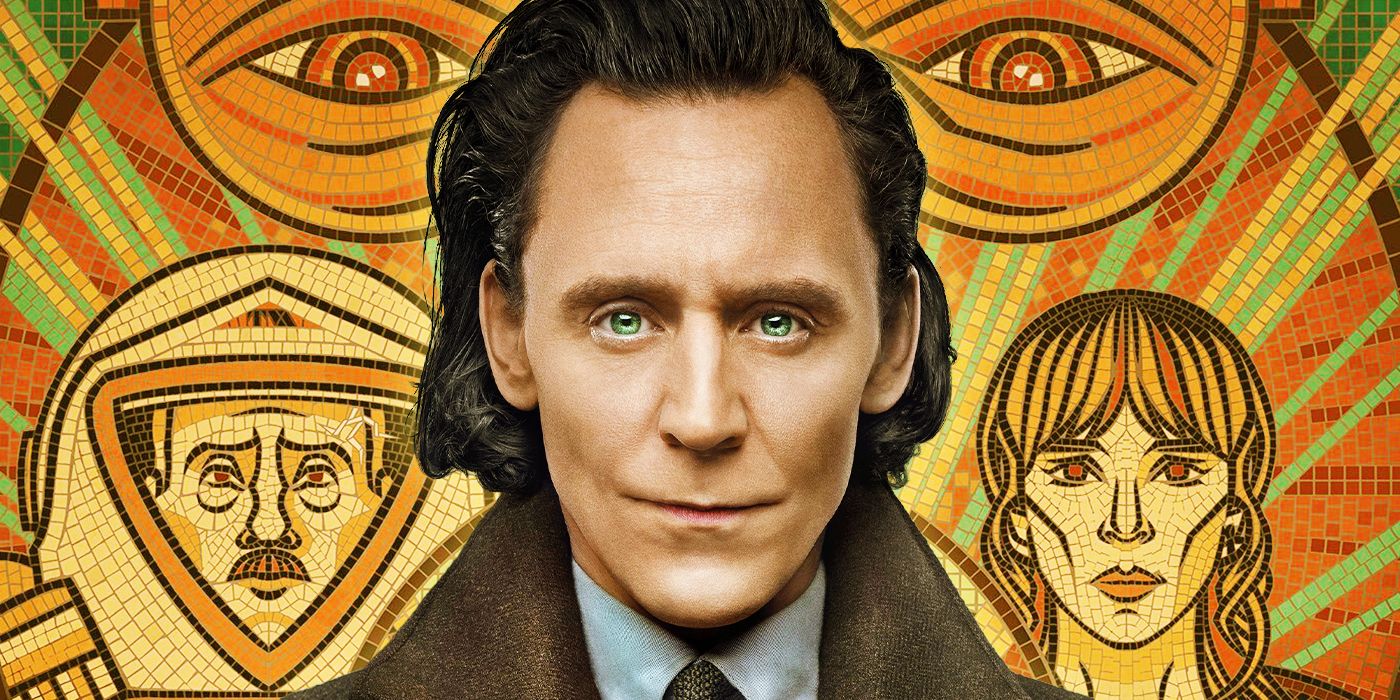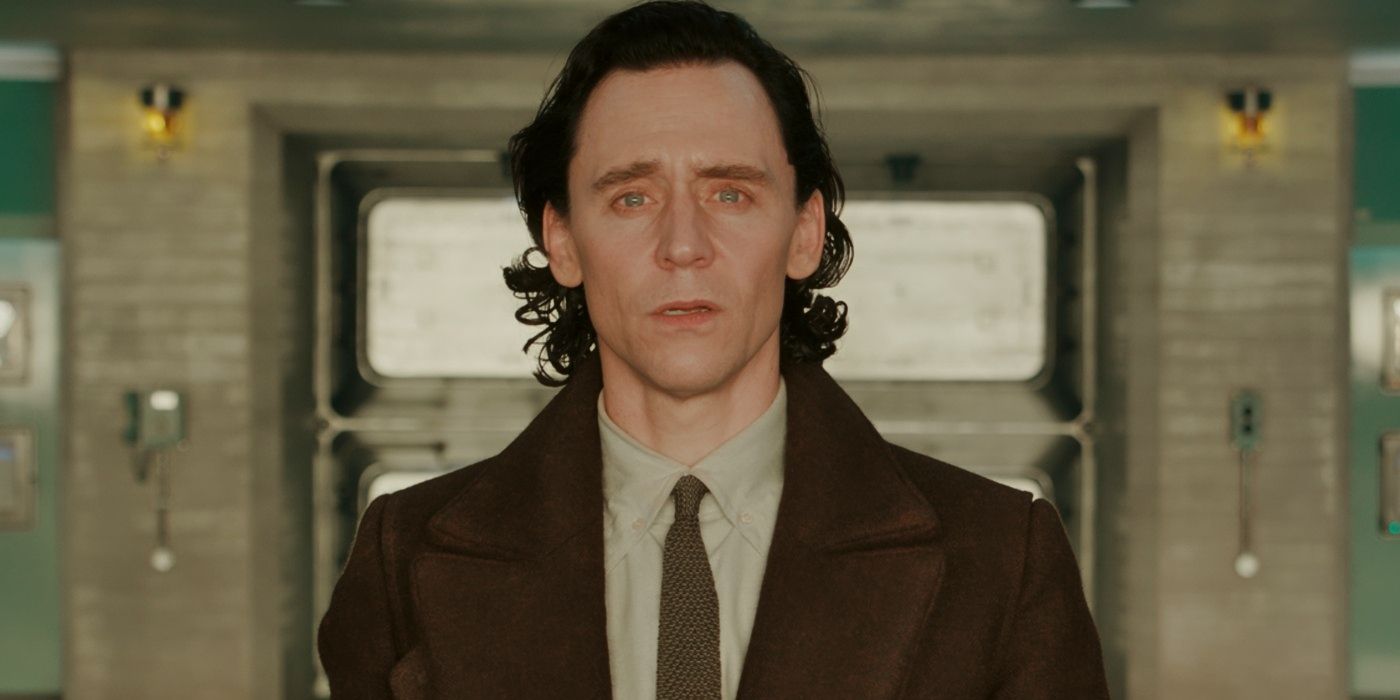Editor’s Note: The following contains spoilers for Loki Season 2.
The Big Picture
- Loki’s recitation of T.S. Eliot’s poem in the finale reflects his realization that he can’t prevent the deaths of his friends and the inevitability of fate and death.
- T.S. Eliot’s “Little Gidding” not only relates to Loki’s journey but also explores themes of cycles of nature, humanity’s neglect of its spiritual side, and the repetition of history.
- T.S. Eliot’s work had a significant influence on the production of Loki Season 2, with Tom Hiddleston using Four Quartets as a reference to shape his portrayal of Loki.
Not a lot of people were expecting to be touched by an MCU work after we learned about all the noise and confusion going on behind the scenes in their television branches, but Loki managed to stick the landing and get us thinking not only about its timey-wimey shenanigans but also about some deeper issues. In “Glorious Purpose,” the series finale presents us with some beautifully acted and written scenes, including one where Loki (Tom Hiddleston) confronts He Who Remains (Jonathan Majors) about the inevitability of fate and how he could break the cycle of destruction brought upon the multiverse by the Kang (also Majors) variants. The god of mischief (now the god of stories) then recites two verses that symbolize his struggle: “We die with the dying. We are born with the dead.” Those are part of a poem by British writer T.S. Eliot, one that’s directly connected to the main subjects not only of the finale but also the whole series.
Loki
Loki, the God of Mischief, steps out of his brother’s shadow to embark on an adventure that takes place after the events of “Avengers: Endgame.”
- Release Date
- June 9, 2021
- Cast
- Tom Hiddleston, Owen Wilson, Gugu Mbatha-Raw, Richard E. Grant
- Main Genre
- Superhero
- Genres
- Superhero
- Rating
- TV-14
- Seasons
- 2
- Studio
- Disney+
- Franchise
- Marvel
What Is T.S. Eliot’s “Little Gidding” About?
Marvel has been on a somewhat poetic streak with its latest series, as Raymond Carver‘s “Late Fragment” is quoted in Secret Invasion and now T.S. Eliot in Loki. But while the former is more a commentary about Nick Fury’s (Samuel L. Jackson) relationship with his Skrull wife, Varra (Charlayne Woodard), the latter is directly related to the main premise of Loki and the title character’s journey through those two packed seasons.
The poem itself is called “Little Gidding” and it’s part of Eliot’s Four Quartets collection, which comprises four poems containing meditations on humanity’s relationship with time, the universe, and the divine. World War II was the main driver of Eliot’s writing at the time, as Great Britain suffered from daily air raids conducted by the Nazis, and this influenced his reflections and view on humanity as a whole. The title of the poem is the name of a small parish in Cambridgeshire, England, and is meant to symbolize the meeting between the divine (the parish itself) and human (the faithful) elements.
Although it makes many religious references — with the imagery of fire embodying this divine element — this isn’t something that’s directly related to Loki‘s plot, even if we try to see He Who Remains as an avatar of God. Still, there is a beautiful reflection on the cycles of nature related to humanity and how we deal with them, using death and grief as symbols (although it isn’t a poem about grief). Within the idea of repeating cycles is also the notion of renewal, as humanity turns its back on the divine to wage war inside itself and engages in a cycle of destruction and creation that is a consequence of this neglect of its spiritual side. Thus, history is bound to repeat itself constantly as humanity perpetuates these never-ending cycles of death and rebirth.
How Does T.S. Eliot’s Poem Relate to Loki’s Journey?
When Loki recites it, He Who Remains has just finished explaining that there is no way to stop him from being killed by Sylvie (Sophia Di Martino) and, subsequently, the implosion of the Temporal Loom. It works as a failsafe, so its destruction means that every branched timeline will be pruned to ensure that only the Sacred Timeline remains, thus avoiding another Multiversal War between the Kang variants and ensuring the time loop that will end up with He Who Remains back on his chair in the Citadel at the End of Time. It’s a tragic moment when we’re reminded that Loki is actually the person who has to always lose in order to make way for the heroic deeds of someone greater.
It’s also the moment when something shifts inside Loki, and he starts to realize that he’s the one who’s going to have to make a sacrifice to ensure the survival of his friends and the branched timelines. He will make this decision a few minutes later, but he’s starting to realize he doesn’t actually need to kill Sylvie to stop the spaghettification of everything outside the Sacred Timeline. “We die with the dying: See, they depart, and we go with them. We are born with the dead: See, they return, and bring us with them.” In this context, the idea behind the verses is that, whenever we lose someone, we lose a piece of ourselves, but they also leave a piece of themselves with us, too. It speaks about the inevitability of fate and death, and how we just can’t prevent some things — in Loki’s case, how he can’t prevent the deaths of his friends.
Those are just two lines in “Little Gidding,” though — there are 44 more, and they bear an eerily beautiful parallel with Loki’s journey. The poem starts with a very suggestive line about Loki’s situation: “What we call the beginning is often the end, and to make an end is to make a beginning. The end is where we start from.” The death of He Who Remains is the trigger to all this madness, and Loki can only make sense of everything if he goes back to that moment — to the beginning. But it’s also the end, because, from that point, the branched timelines were all doomed. So, the beginning is the end, and that’s where Loki has to start.
The last part of the poem starts with these lines: “We shall not cease from exploration, and the end of all our exploring will be to arrive where we started and know the place for the first time.” Shortly before he arrives at the Citadel at the End of Time, Loki does everything he can to stop the implosion of the Loom, including spending centuries studying everything in Physics to save precious seconds that could avoid the machine’s implosion. He explores every possibility and concludes that preventing Sylvie from killing He Who Remains is the only way. When He Who Remains tells Loki there’s no way to stop anything, even then Loki doesn’t cease his exploration. However, he eventually understands he has to be what holds the multiverse and its infinite branches together, and goes back to the Citadel at the End of Time and takes He Who Remains’ place. “A condition of complete simplicity (costing not less than everything) and all shall be well and all manner of thing shall be well,” writes T.S. Eliot at the conclusion of “Little Gidding,” which could very well be the conclusion of Loki itself.
T.S. Eliot’s Work Played a Role in the Production of ‘Loki’ Season 2
One of the most interesting tidbits about the production of Loki Season 2 is that T.S. Eliot’s work played a much larger role than just having two lines recited in the finale. Four Quartets was an important reference for Tom Hiddleston to work on his portrayal of Loki this time around. His reading of how Four Quartets parallels Loki’s journey is the sort of thing only a well-read artist could come up with, and we know him to be just that. But he’s also a producer on Loki and an overall thoughtful person, so he made sure everyone on the team understood the insight he had into his character. The best example of this is the fact that Hiddleston gifted composer Natalie Holt with a copy of Four Quartets, something Holt revealed in an interview with Collider. Holt’s work on Season 2 is among the best soundtracks of the entire MCU, displaying an understanding of Loki’s journey that is crucial to conveying emotion through music.
Loki Season 2 is available to stream in its entirety on Disney+ in the U.S.
Denial of responsibility! TechCodex is an automatic aggregator of the all world’s media. In each content, the hyperlink to the primary source is specified. All trademarks belong to their rightful owners, and all materials to their authors. For any complaint, please reach us at – [email protected]. We will take necessary action within 24 hours.
Khushi Patel is a science fiction author who lives in Austin, Texas. She has published three novels, and her work has been praised for its originality and imagination. Khushi is a graduate of Rice University, and she has worked as a software engineer. She is a member of the Science Fiction Writers of America, and her books have been nominated for several awards.



